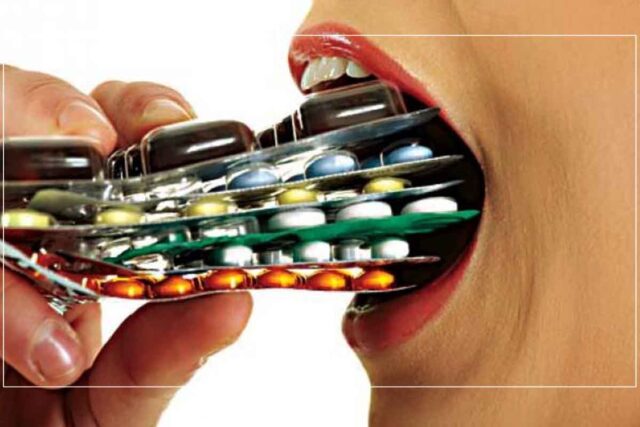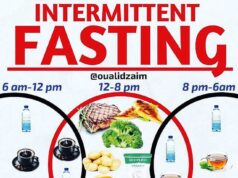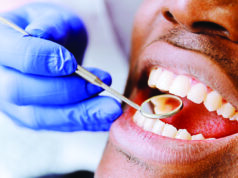By Sarah Achen
Buying a tablet or doze of paracetamol, to get rid of a headache might seem like an empowerment to patients over minor illnesses, but might over time exacerbate health problems.
When one chooses to treat themselves with over the counter drugs, it is called self-medication, and this remains a big concern among the populace.
Most people seek these drugs from pharmacies or drug stores because many are not able to afford treatment from healthy facilities or clinics, and perhaps think they have a “mere headache or stomachache”.
One would argue that pharmacists should deny clients drugs without doctor’s advice, but this is the story for another day.
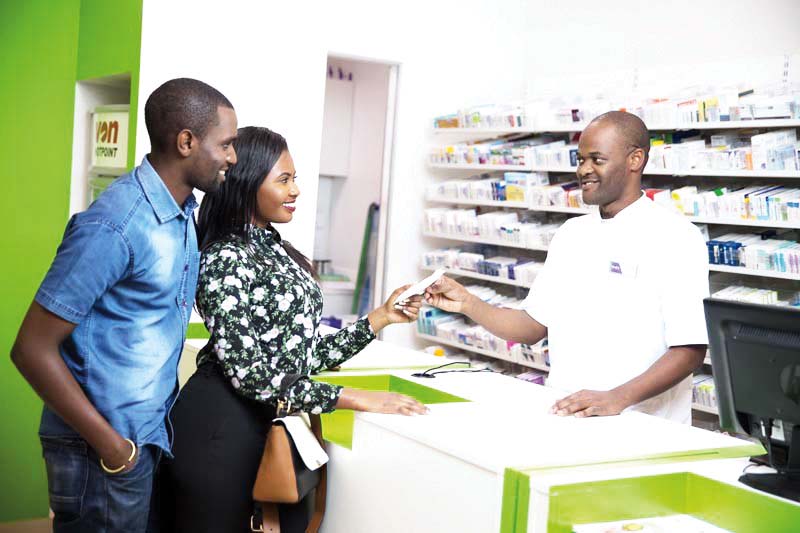
Why self-medicate
Paul Otema is an ardent self-medicating person, who once in a while buys over-the-counter drugs for treatment.
He says when he develops a bizarre feeling like unusual body weakness, he knows it is either malaria or typhoid.
He dreads the long hospital queues, as opposed to a pharmacy where he walks in and gets the medicine he wants.
“I started taking medicines when I was 12 years, and to date, I take coartem when I feel malaria symptoms, and it has not affected me in any way. I only went to hospital when I was 13years,” Otema says.
He believes that low income levels are to blame for this vice.
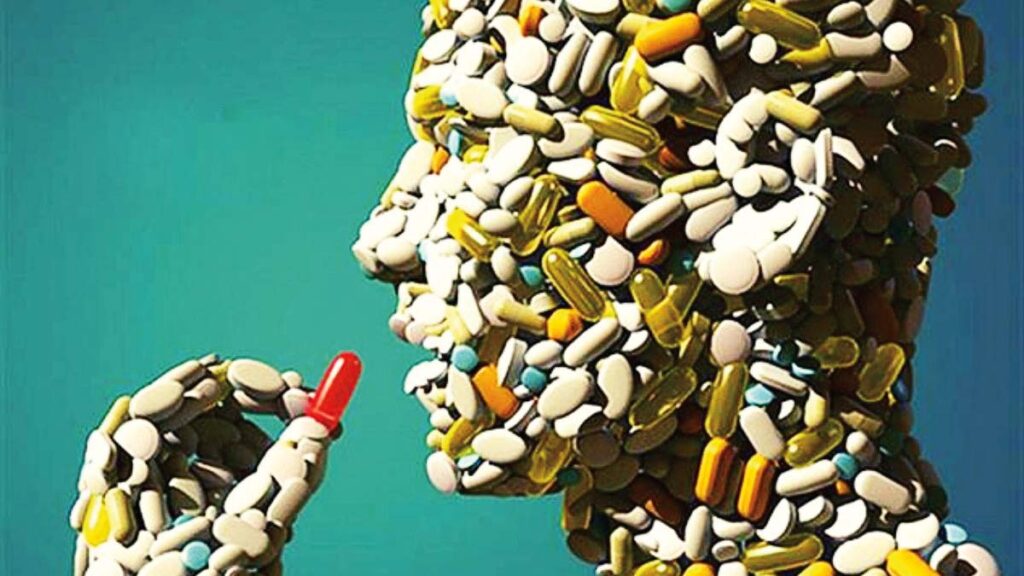
People seek drugs from pharmacies because getting drugs from health facilities is tedious.
He adds that some people believe that if government puts in place a national health insurance scheme, it would go a long way in saving many people, because then, people would shun the practice.
On ground
Almost all pharmacists in Uganda will tell you that people just walk in and ask for antibiotics or painkillers without a doctor’s prescription.
Antibiotics can be effective in treating some bacterial infections, and this is generating antibiotic resistance, which doctors say is turning into a silent killer.
“Only five of more than 20 clients I receive at our pharmacy on a daily basis come with prescriptions from health centres and hospitals,” says Joan Bwete, a pharmacist in Kampala.
She says the most purchased drugs are painkillers and antibiotics.
Some of the commonly purchased drugs include doxycyline, ciprofloxacin, paracetamol, metronidaole, azithromycin, amoxicillin and tetracycline.
Although it is strictly illegal to distribute antibiotics without a prescription in Uganda, pharmacies are often confronted with customers demanding to buy the medications with little or no oversight.
This phenomenon occurs not only in the capital. In Mukono, one of the outskirts of the city, pharmacy assistant Mary Atugonza has to deal with similar situations. She says people claim not to afford to go to the doctor and then pay for medication.
“Most of our clients walk in and we give them drugs without doctor’s prescription. When we demand for prescription, they claim it is tiring to go to a doctor for prescription and add that clinics are costly,” Atugonza explains.
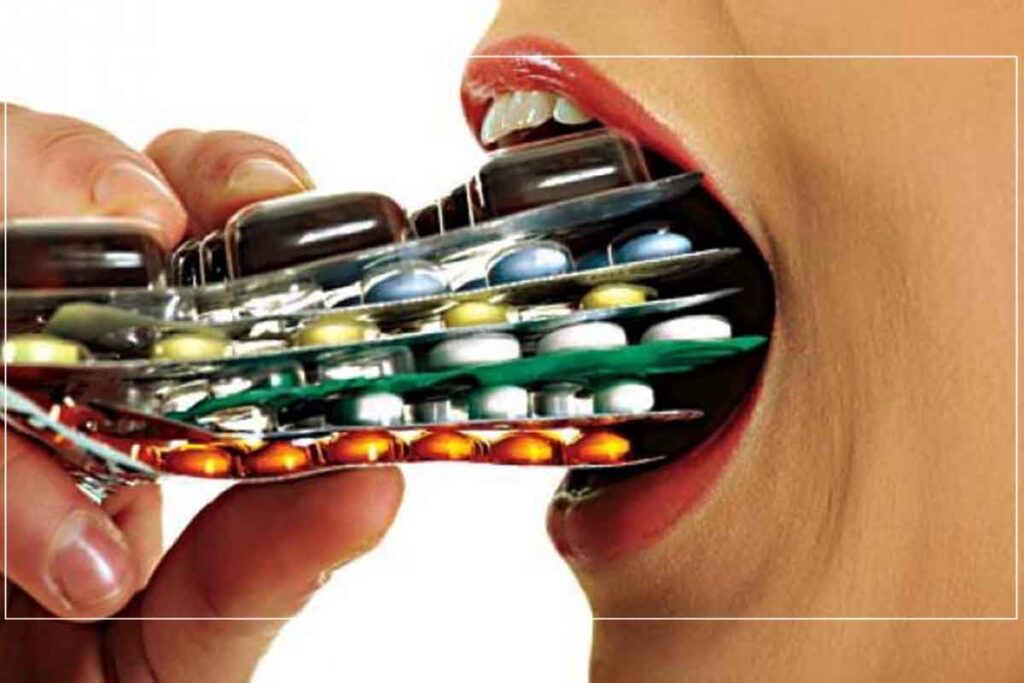
More risks
National Drug Authority spokesperson, Abiaz Rwamwiri, clarifies that self-medication is a global phenomenon.
The adverse consequences of such practices should always be emphasized to the community.
He says: “For example, rampant irrational use of antimicrobials without medical guidance may result in greater probability of inappropriate, incorrect, or undue therapy, missed diagnosis, delays in appropriate treatment, pathogen resistance and increase the rate of disease.”
Rwamwiri explains that drugs can be safe, if the people using them have sufficient knowledge about the dose, time of intake, and side effects on over dose. Due to lack of information, however, it can cause serious effects such as antibiotic resistance, skin problem, hypersensitivity or death.
According to Rwamwiri, major problems related to self-medication are increased resistance of pathogens and serious health hazards such as adverse reaction and prolonged suffering.
He admits that one of the biggest challenges is that most Ugandans pay for healthcare out of pocket, and this creates an enormous burden on livelihoods.
Low-income households and other vulnerable groups are the least likely to be able to afford paying for consultation and diagnosis, but will rather guess depending on the symptoms.
Self-medication, just like a wrong diagnosis and treatment, can result in antimicrobial resistance, especially given that antibiotics are not ‘one-size-fits-all’.
Antimicrobial resistance occurs when bacteria, viruses, fungi and parasites change over time and no longer respond to medicines, making infections harder to treat and increasing the risk of disease spread, severe illness and death.
“Once you go to the third-tier and you do not see a response, you are going to reach a point where if a person gets an infection he or she may not be saved. If one gets overwhelming bacterial infection, then they are going to end up with severe organ damage and this can be fatal,” Rwamwiri says.

During pregnancy
Self-medication can cause significant challenges for individuals and community, especially in women during pregnancy.
According to Dr Emma Bakalu of Zziwa Memorial Centre Bweyogerere, self-medication is taking of drugs, herbs or home remedies on one’s own initiative, or on the advice of another person, without consulting a doctor.
Self-medication can cause huge challenges to anybody and to pregnant women, as well the unborn child.
Many pregnant mothers are already aware of the basics of keeping their baby healthy: avoid alcohol consumption, smoking and drug use, stay active and make healthy food choices when you are eating for two.
Another part of a healthy pregnancy is to be careful about taking medicines.
Bukalu cautions against taking certain medications. In some cases medication is inevitable as it has to treat a complication.
To some extent it can be more deadly not to take certain drug. For example, a pregnant mother may have an infection and she has to use antibiotics to reverse adverse effects.
“If you are in your first trimester, avoid self-medication especially (in the first 12 to 13 weeks of pregnancy) because that is when the risk to your baby is highest,” he says.
Also, during pregnancy, one should avoid eating raw meat or under cooked beef or poultry, as they can be contaminated with chemicals.
Pregnant mothers should refrain from taking unprescribed medicine, as it poses a high risk to the baby.
“For example if you are pregnant or breastfeeding, you risk getting the breast milk affected. Talk to your doctor before taking any drugs medicine, vitamin or supplement,” he adds.
Dr Philip Sseyonga of Church of Uganda Hospital, Mukono also urges the general public to avoid self- prescription and to try completing the dosage once given by a doctor. He says once you do not complete the dosage, the infection will be very hard to treat.
He adds that there have been situations where doctors trying to treat severe infections like meningitis have to try first-tier and second-tier antibiotics to the patient.
In this case if one has not sought medical advice, they will take wrong medication, which may affect their organs.
Self-medication can harm the kidney and cause preterm labour and low birth weight.
Way out
By better understanding the reasons why and when you self-medicate, you can find healthier and more effective ways of coping with your problems and improving your overall mood and well-being.
Otema advises that the possible solution for self- medication is for one to join an insurance scheme if they are able to afford. However, this is still a challenge, as the ordinary Ugandan is not able.
Self-medication may be the easy way out for you, but remember at the end of the day your life counts.
Dr Bakulu advises that one must stay away from self-medication and always make it a point to seek medical help whenever they are unwell.
Also, people should learn to keep drugs out of reach.
















